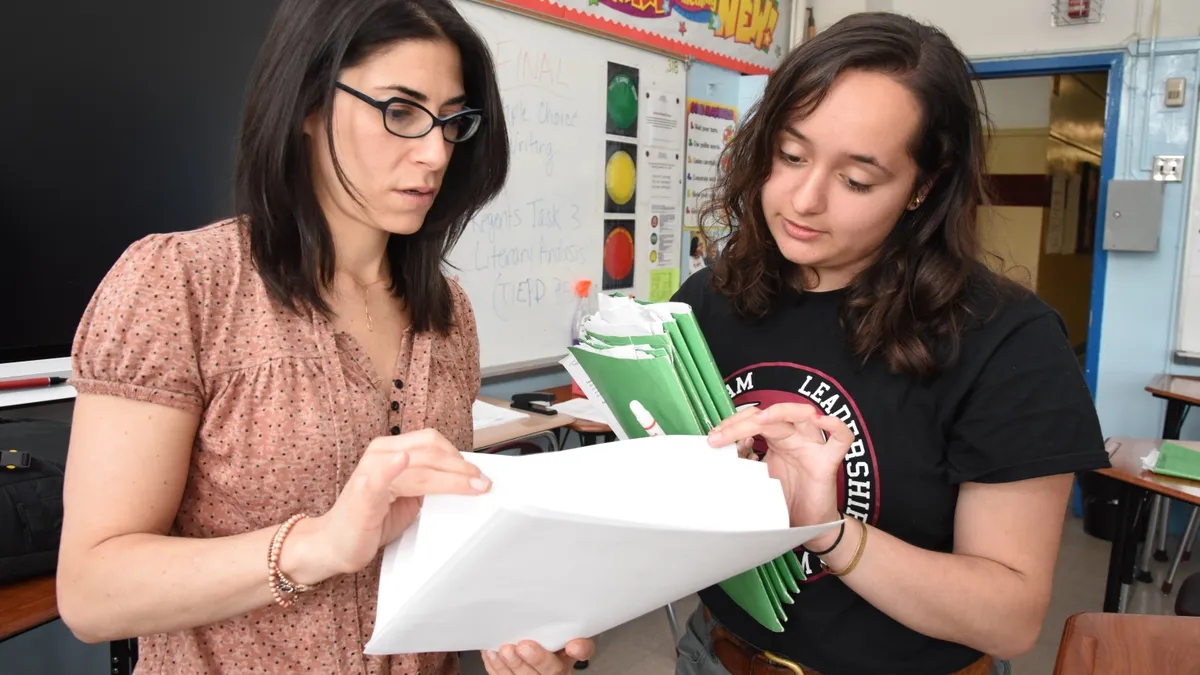Dive Brief:
-
In an effort to battle teacher shortages, some states are considering plans to bump up teacher pay, District Administration reports. Florida is among the latest, with Gov. Ron DeSantis proposing the use of $600 million to increase minimum starting pay from $37,636 to $47,500.
-
Teacher shortages are a problem nationwide, with an Indiana superintendent survey, for example, finding 92% of districts in the state are experiencing a shortage this year. Connecticut, Alabama and Ohio are also struggling with the issue.
-
Many, including DeSantis, blame the shortage on a strong economy in which wages for other professions are increasing, but challenging school environments, weak professional development and lack of support also contribute to the growing problem. Proposed solutions include giving teachers the opportunity to innovate and become entrepreneurs in their field.
Dive Insight:
While low pay is often blamed for the shortage, its solution doesn't have to be limited to improving paychecks. Districts lacking funds to increase pay are finding success with offering perks like low-cost, on-site childcare options, free gym memberships, on-site healthcare options and stress reduction classes.
In areas where the cost of living is high, some districts are providing solutions such as tiny homes and paid sabbaticals to help educators recharge and refresh.
In many areas, perks like student loan forgiveness programs are already in place but still need more funding to make a difference. In addition, teachers must be compensated with additional and substantial pay in exchange for working in high-needs schools.
In some cases, the state lawmakers are getting involved. Colorado lawmakers are attempting to build a teacher pipeline with new education bills designed to attract teachers to rural districts. Previous efforts resulted in about 800 future educators in the system.
Proposed bills would also provide up to $25,000 in loan forgiveness for teachers who work in hard-to-fill jobs, increase the number and amount of stipends for rural teachers who seek additional education, provide a $2,000 stipend for mentors working with student teachers, and create principal mentorship programs. Rural superintendents counter fully funding schools in Colorado would have a greater impact.
Some also argue antiquated teacher exams are keeping some potential educators out of the profession. The California Commission on Teacher Credentialing is looking into whether parts of its test need to be revised or eliminated. Critics claim it doesn’t align with current English language arts standards and may not be a good indicator of whether a teacher will be successful in his or her profession.












